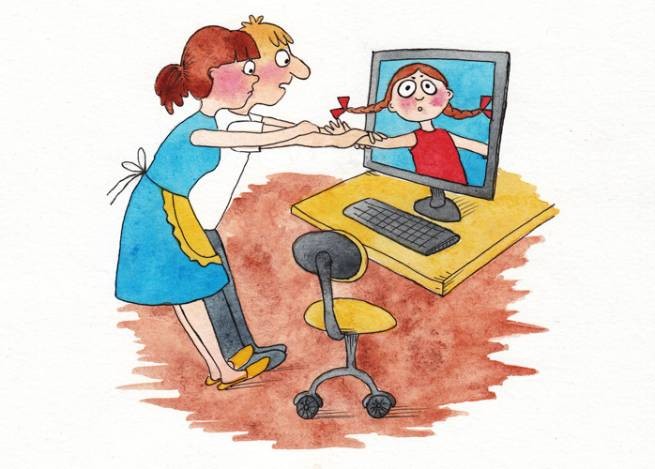The European Union is preparing a law that will help “catch” sexual predators on the Internet who threaten children. The issue of combating sexual abuse of minors on the Internet is long overdue.
In Brussels, a demonstration was held by activists demanding quick action from the European Union to adopt a Regulation on combating child sexual abuse (chat control, checking correspondence and image sharing). People dressed in protective suits and holding cleaning products chanted: “Clean up the online world!” Their appearance demonstrated that the Internet is a dangerous and dirty place for children.
Privacy advocates, meanwhile, warn against draconian measures. Members of the Courage Movement were themselves victims of online abuse as children. Now they want to EU took swift action against child sexual predators. Patrick Sandford from Ireland addresses parents:
“One child in five, one in five of your children, will be sexually abused before the age of 15 or 16. For many, this will happen in virtual space. Unfortunately, Europe accounts for 60% of sexual abuse committed online.”
A forthcoming vetting bill would require major tech platforms to search for and ban child sexual abuse material. writes euronews. While some member states oppose the draconian measures, Sharliina Eräpuro, a moral advocate from Finland, calls on the EU not to relax controls on chat rooms:
“This law can protect children from harmful influences online. But the online community is constantly growing due to the development of technology and the expansion of digital companies. And we don’t know what the future holds for us. All these social networks appeared relatively recently. We don’t know how they will affect children in the future. So this law will protect children not only now, but also in the future.”
Why does the new law raise objections among human rights activists? Across the EU, NGOs warned in an open letter that in its current form the law would allow communications to be intercepted and deprive hundreds of millions of Europeans of privacy. Swiss researcher Carmela Troncoso fears that such a measure could lead to abuse:
“This technology is designed to search not only for child pornography, but also for a wide range of suspicious activity. We know that it will be used for other purposes, to identify anything. Once such a mechanism is up and running, governments, technology companies and hackers who can break into any system will be able to use the resulting gaps to examine our communications.”
At the end of September there will be a discussion of this issue by EU member states. MEPs will hold a debate on chat control in the Fundamental Rights Committee in October, and then the issue of online child sexual abuse will be on the agenda of the plenary session of the European Parliament.







More Stories
Union of Judges: “People’s courts were created against us with the loyal attitude of the government”
Borrell: "Europeans will not go to die for Donbass, but they could help Ukrainians stop dying for Donbass"
Court in the Mati case: “10 euros a day is the price of the lives of our children”